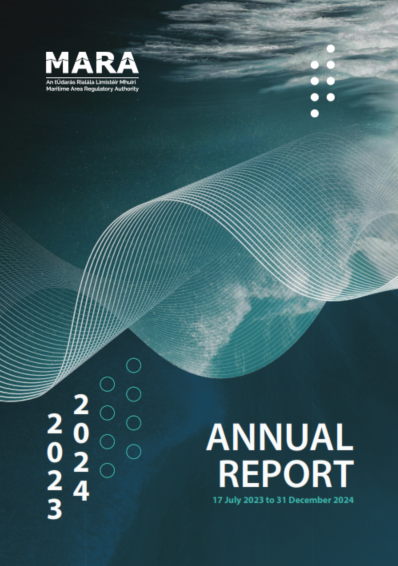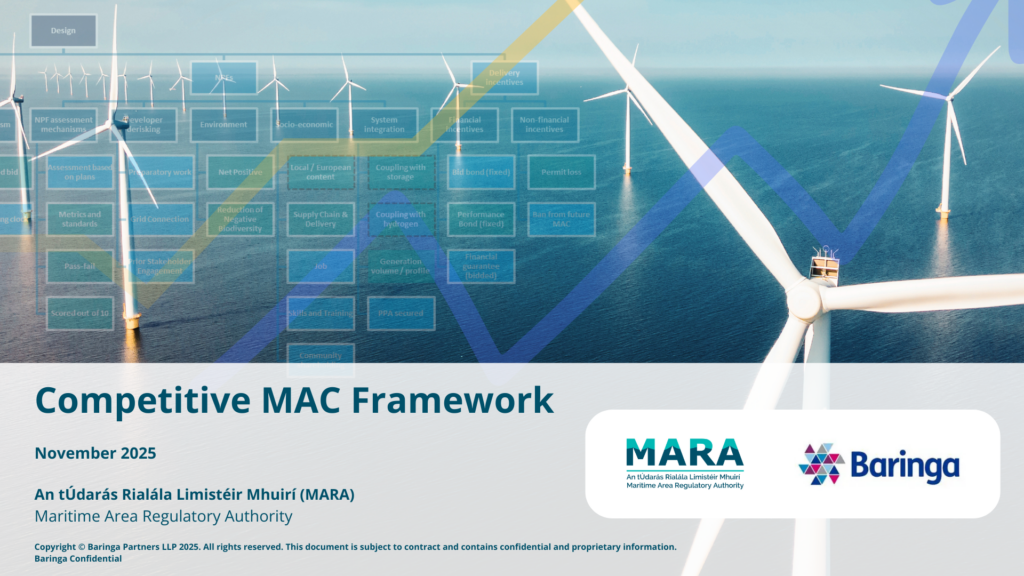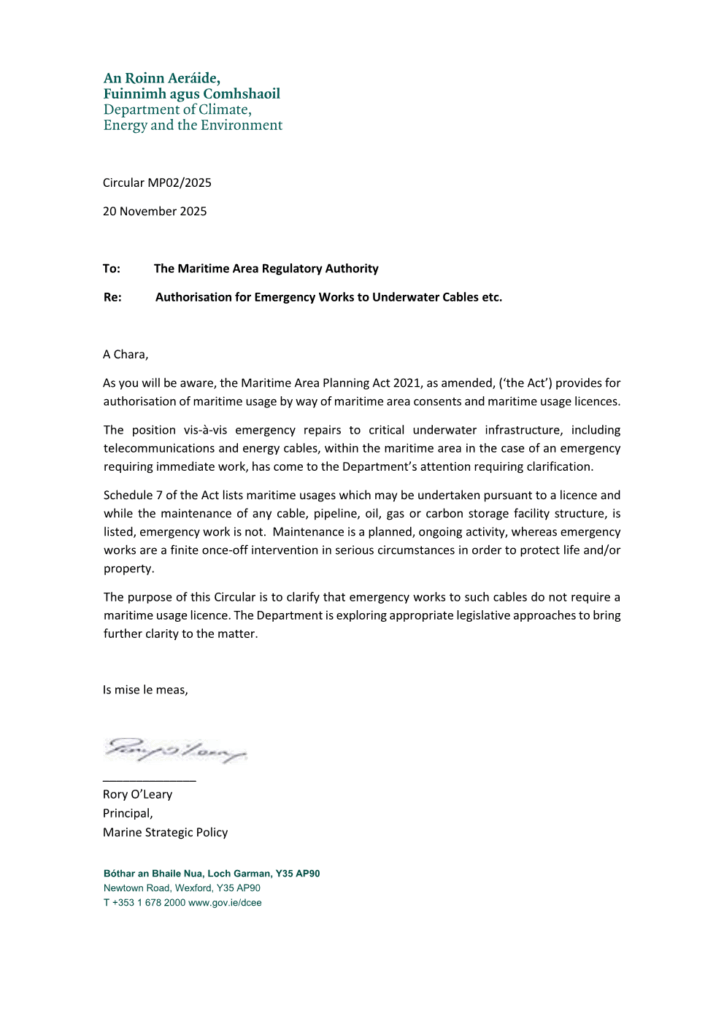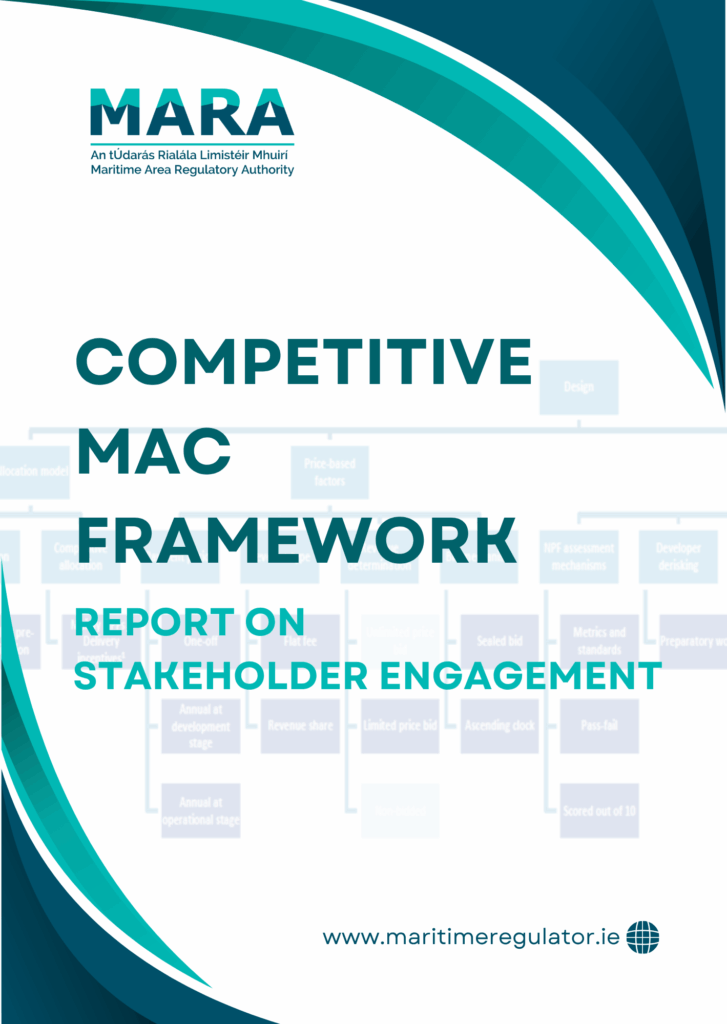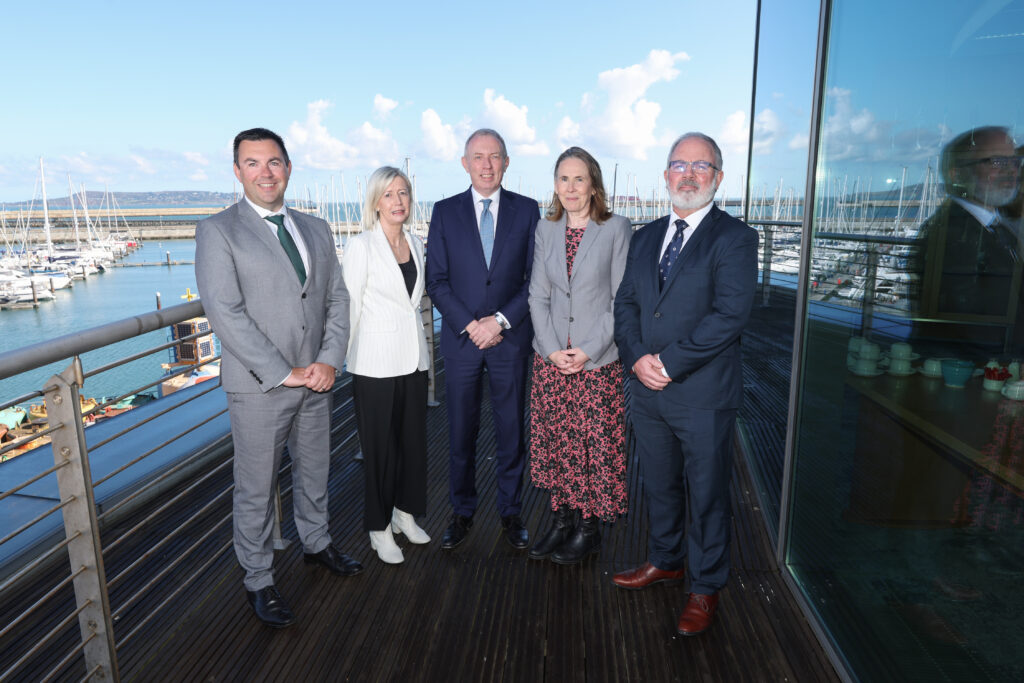Ireland’s Maritime Area
Acting as custodian and regulator of Ireland’s maritime area, we aim to ensure that Ireland’s marine environment is protected for the future through co-operation, compliance, enforcement and transparent decision making.
The Maritime Area Regulatory Authority (MARA)
Ireland’s maritime area holds great potential.
As an independent maritime regulator, MARA plays a key role in ensuring the effective use of Ireland’s maritime area.
MARA’s regulatory decision-making provides a pathway to realising Ireland’s high ambitions for the diverse needs of all users of the maritime space. Working collaboratively with all its partners, MARA supports the pillars of Ireland’s marine planning system.
MARA Statement of Strategy 2024 – 2027
Over the lifecycle of this strategy MARA is committed to being a leading voice for sustainable management, and protection of Ireland’s maritime area through effective regulation. We will also proactively inform policy, legislation, and better informed decisions for development in the maritime area while mitigating harm in the marine environment.
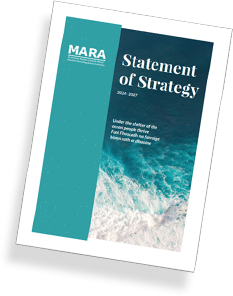
Annual Report
The Maritime Area Regulatory Authority has published its first Annual Report covering the period from establishment on the 17 July 2023 to year end 2024. The publication marks a significant governance milestone for MARA as an independent State agency.
The annual report gives an overview of progress during the first 18 months of operation, highlighting some of MARA’s key achievements during that period
